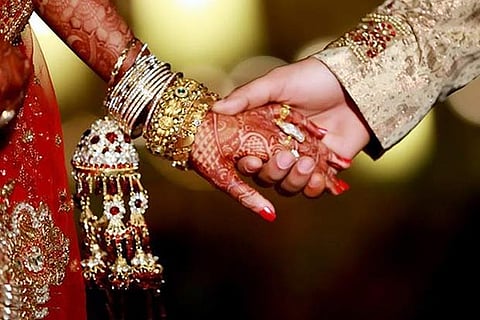

New Delhi
The Union Cabinet’s decision to raise the marriage age of women from 18 to 21 years deserves to be unreservedly welcomed. How much of an impact this raise will have in a country where many women, particularly those in rural areas, are married before the age of 18, is open to debate. But there can be no taking away from the fact that such a step is in consonance with the ongoing battle against deep-seated patriarchal biases and is aimed at raising the educational status of women and improving their socio-economic well-being.
Raising the permissible marriage age after more than four decades (18 years was set in 1976) is an important step towards encouraging women’s empowerment. It is also, and this is sometimes not recognised well enough, critical for overall societal progress. There are studies that show there is a close correlation between age of marriage and key factors like a women’s nutritional status and overall state of health. The case for asking women to marry later has nothing to do with retarding population growth – although this may be an unintended consequence – as to invest them with greater power over their bodies and their lives.
Those who question, and these include some women activists, what the point is in raising the marriage age when the existing 18-year age requirement is being routinely breached, are missing the point. They are right that there is an unconscionably large percentage of women (over 20 per cent) who are married, or made to marry, before they are 18. But they are wrong in believing, or at the very least implying, that the legal cap will have no impact at all. The past few decades have revealed a slow but gradual increase in the percentage of women who have got married after 18. The fall in numbers may be a result of a complex set of factors, including greater socio-economic opportunities, incremental changes in patriarchal mindsets, increase in literacy, urbanisation and so on. But this does not mean that the legal requirement of 18 years played no role at all in retarding the rate of underage marriages. The law alone will not stop this from happening, but it is one more weapon – and an important one – in the arsenal to fight for empowerment.
The change in marriage age will require reforms in the various laws that govern marriages of different communities. This move should not be allowed to be thwarted by arch-conservatives; neither should the debate be deflected by those who say that raising the age will only serve to criminalise a larger number of women and their families because of early marriages. We have come a long way from 1929, when underage marriages were the norm, and when women were allowed to marry when they were 15. This is another step in the same direction. Yes, it will not stop underage marriages, but it will certainly help in promoting the view that marrying later will give women more control over their reproductive rights and a greater say in their families.
Visit news.dtnext.in to explore our interactive epaper!
Download the DT Next app for more exciting features!
Click here for iOS
Click here for Android